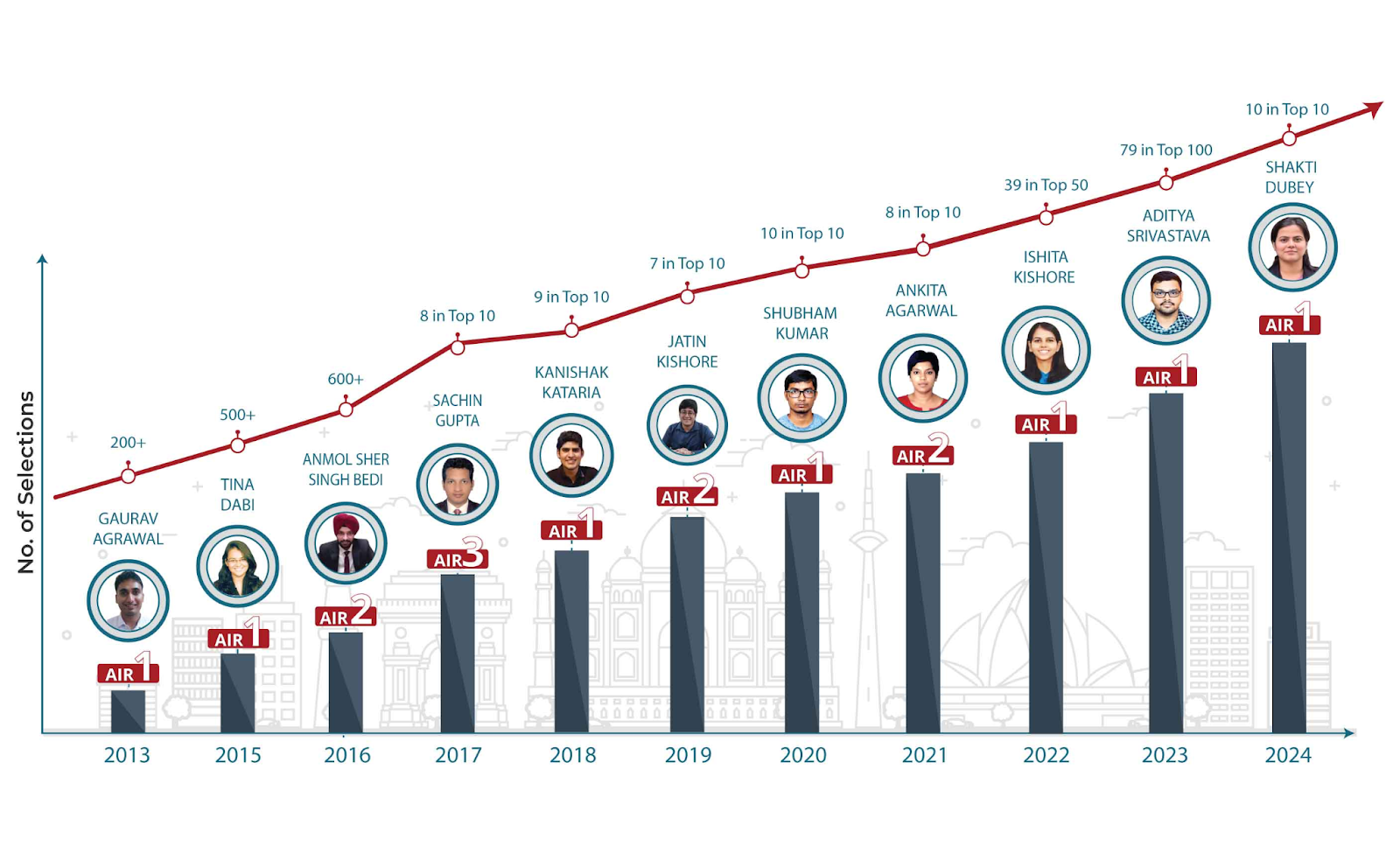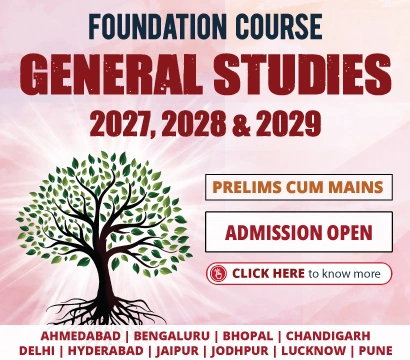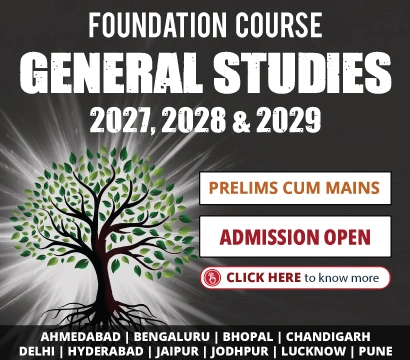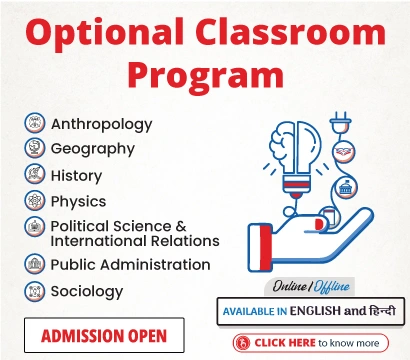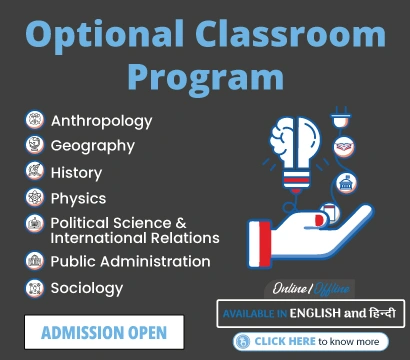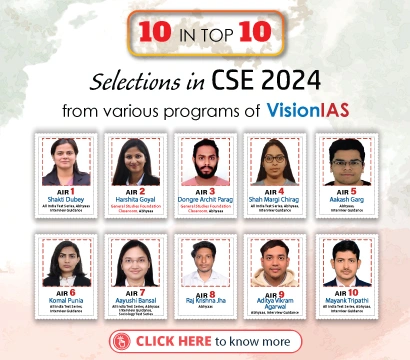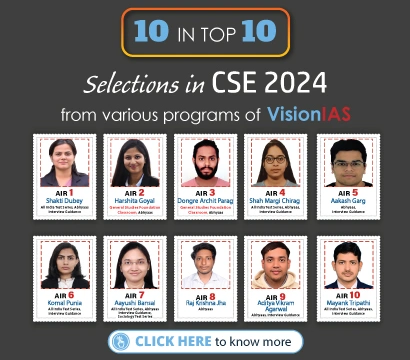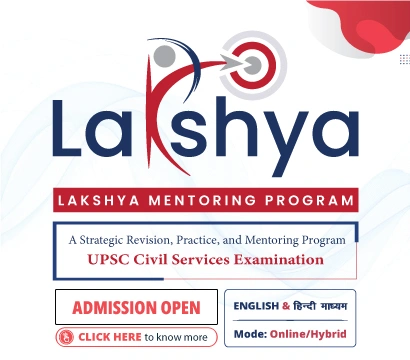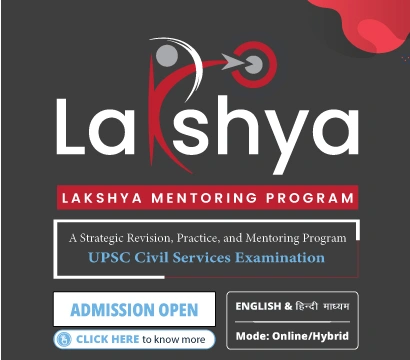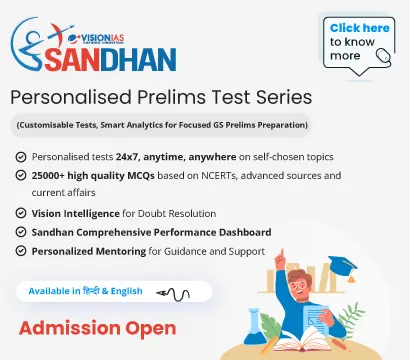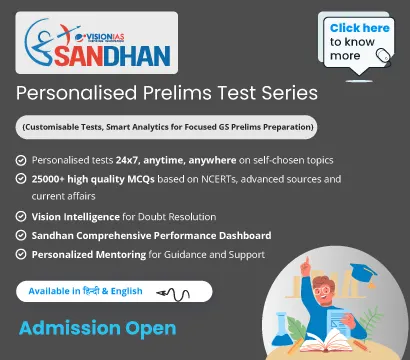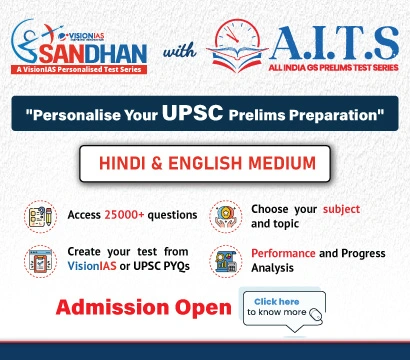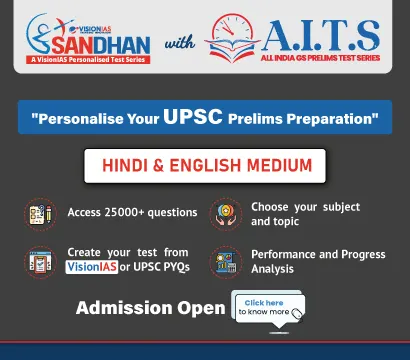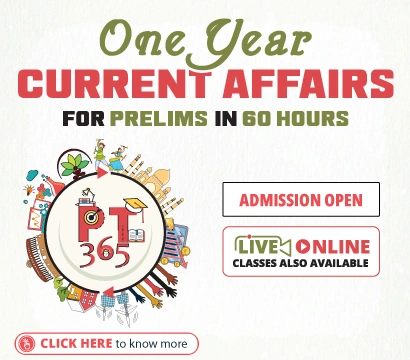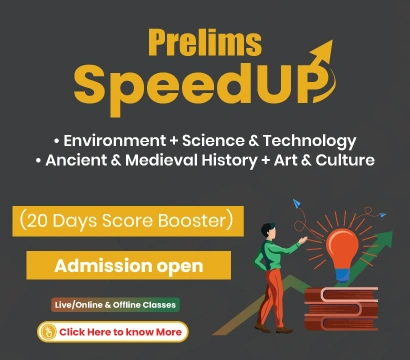Mains
Master PSIR Optional for UPSC Mains 2025: Smart Strategy for Paper 1 (Section A)
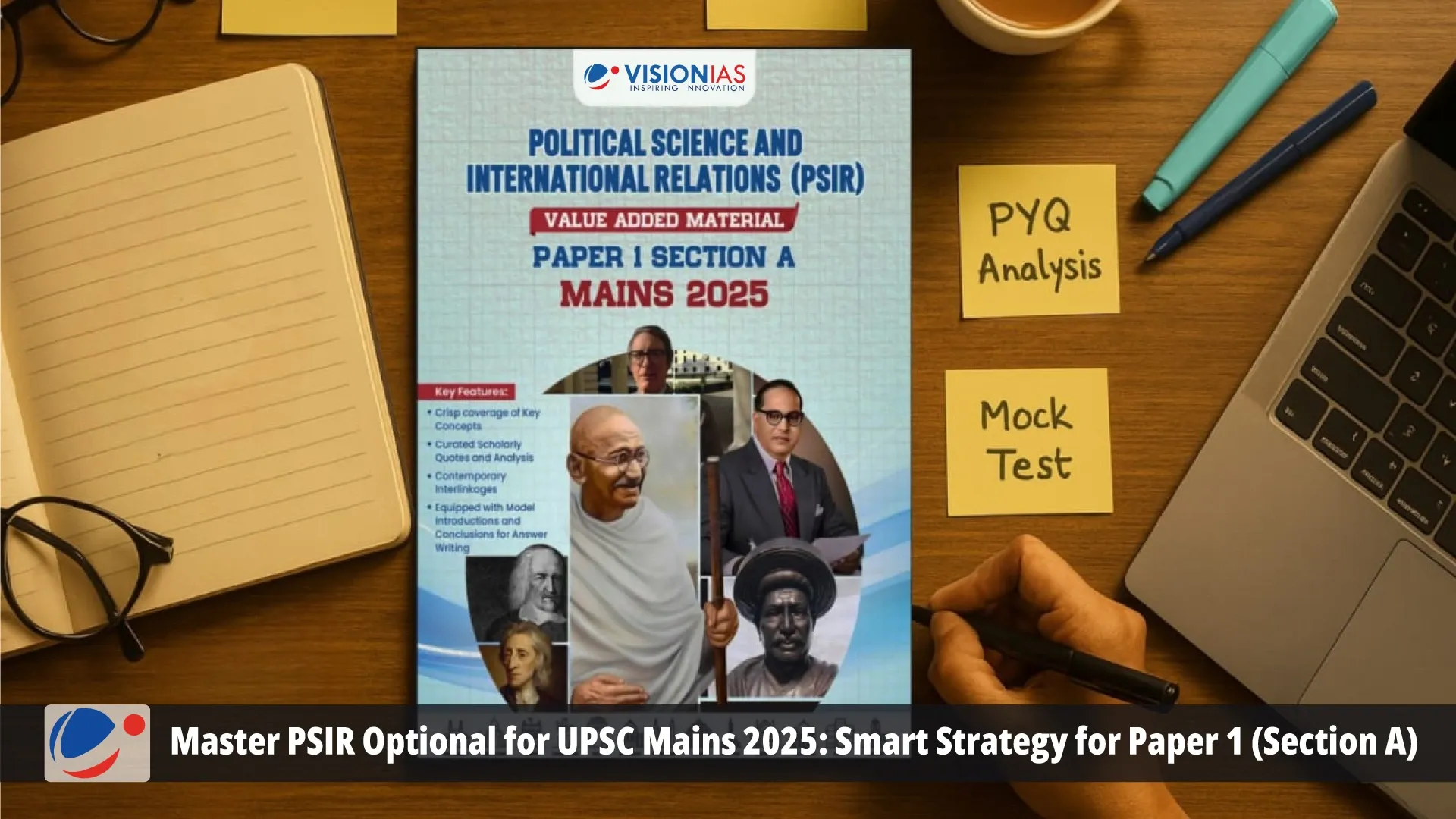
The UPSC Civil Services Mains examination stands as a fundamental and high-stakes component of the UPSC Civil Services Exam, collectively contributing a substantial 1750 marks. Within this, the optional subject for UPSC holds particular significance, accounting for a notable 500 marks.
This crucial 500-mark segment is further divided across two distinct papers: Paper I and Paper II, with each carrying 250 marks. Given this significant weightage, performance in the optional papers can critically influence an aspirant’s overall score and final ranking.
To truly excel and maximize your scoring potential in the UPSC PSIR Optional papers, it is not merely about broad coverage but imperative to adopt a refined, data-driven approach. This necessitates a precisely targeted and strategic study plan, coupled with a finely tuned methodology designed to optimize your efforts for the highest possible returns.
This article aims to serve as your comprehensive, one-stop guide, offering clear and actionable guidance on how to smartly prepare for Political Science & International Relations (PSIR) Optional. This approach will ensure you gain a decisive competitive advantage in this challenging examination.
UPSC PSIR Optional: An Overview
Political Science and International Relations (PSIR) is an all-encompassing optional subject that explores both domestic political structures and socio-economic dynamics, alongside global phenomena under International Relations. It investigates core concepts such as the evolution of the state and contemporary ideas of democracy, rights, liberty, equality, and justice.
- PSIR further examines the complex nature of global politics, focusing on the dual aspects of inter-state relations, which can be either cooperative or conflictual.
- The optional includes the study of comparative politics across different nations, key theories of international relations, and critical global issues such as terrorism, human rights abuses, and environmental challenges.
- PSIR also covers the dynamics of multilateralism, its wide-ranging impact, and detailed aspects.
- Additionally, PSIR investigates India’s diplomatic principles, the evolution of its foreign policy, and its bilateral relationships with other countries.
With its broad scope, bridging various disciplines, PSIR stands out as a captivating yet challenging area of study.
PYQ Mapping of PSIR PAPER 1 with Syllabus Topics
The UPSC Syllabus of PSIR is very exhaustive. In this blog we will understand the mapping of PYQ asked in Part A of Paper 1 for PSIR with the relevant syllabus topic.
| Section A—Political Theory and Indian Politics | ||
|---|---|---|
| Topic/Unit | Micro Topic | PYQS |
| Political Theory | Meaning and approaches | 1. Behavioural approach to Political Science (2024)/10M 2. Elucidate the meanings inherent in the term “political’ with appropriate illustrations. 2024/20M 3. ‘Credo of Relevance’ in post-behavioralism advocates the 4. importance of action science. Analyze. 2023/15M 4. Normative approach in Political science. Comment. 2023/10M 5. Decline of political theory. Comment.2023/10M 6. Eurocentrism is both the target and the motive force of the post-colonial political theory. Discuss. 2023/15M 7. Systems Approach. Write in about 150 words. 2022/10M 8. Examine the importance of the behavioral approach in political theory. What led to its decline? 2021/15M 9. Discuss the significance of a normative approach to Political theory. 2020/15M |
| Theories of State | Liberal, Neo-liberal, Marxist, Pluralist, post-colonial and Feminist | 1. Examine the liberal theory of State in contemporary politics. 2023/20M 2. Critically examine the neoliberal theory of State. 2018/20M 3. Neo-liberal perspective of State.Comment.2017/10M 4. Examine the conception of the State in the ideologies of Fascism and Marxism. 2014/15M 5. What is meant by ‘relative autonomy’ of State in Marxist analysis? 2012/20M 6. Evaluate Marx’s instrumentalist approach to the State. 2010/30M 7. Pluralist theory of state. 2024/10M 8. Pluralist theory of the State.Comment.2019/10M 9. Post-colonial theory of the state. Comment.2020/10M 10. Make an assessment of the post-colonial understanding of State. 2011/30M 11. Feminist critique of the State.Comment.2021/10M 12. Discuss Feminist theory of the State. 2016/15M |
| Justice | Conceptions of justice with special reference to Rawl’s theory of justice and its communitarian critiques. | 1. Rawls’ idea of the ‘liberal self’ is too individualistic. Explain, in this context, the communitarian critique of Rawls’ theory of justice. 2023/15M 2. Examine the entitlement theory of justice. 2022/15M 3. How has Rawls enriched the idea of justice in liberalism? 2021/10M 4. Examine communitarian perspectives on justice. 2019/15M 5. Distributive Justice. Comment. 2018/10M 6. Analyse John Rawls justification of discrimination to achieve the goals of Justice.2018/15M 7. Rawls’ theory of justice is both contractual and distributive. Examine. 2017/20M 8. Critically examine John Rawls’s argument for democratic equality. 2016/15M |
| Equality | Social, political and economic; relationship between equality and freedom; Affirmative action. | 1. The nature of the relationship between equality of democratic citizenship and liberty of citizens is influenced by economic equality. Comment. 2024/15M 2. Affirmative Action Policies draw as much strong criticism as strong support. Analyze this statement in the context of equality. 2023/15M 3. Equality of estates caused equality of power, and equality of power is liberty.” Comment.2022/15M 4. Equality of outcome as a political idea. 2021/10M 5. Equality of opportunity. Comment. 2020/10M 6. Equality means fair treatment rather than equal treatment. Comment.2018/15M 7. Affirmative action. Comment. 2021/10M; 2016/10M |
| Rights | Meaning and theories; different kinds of rights; Concept of Human Rights. | 1. Multicultural perspective on rights. Comment.2023/10M 2. Assess the significance of the right to property in political theory. 2020/15M3. Discuss the doctrine of ‘rights as trumps.’ 2019/15M 4. What do you understand by Multiculturalism? Discuss Bhikhu Parekh’s views on Multiculturalism.2017/20M 5. The debate on human rights is caught between the limitations of both universalism and cultural relativism. Comment. 2023/20M 6. Human Rights are a complex and contested social practice that organizes relations between individuals, society and the State. Comment.2022/15M 7. Can there be a universal conception of human rights? Give your arguments. 2021/10M 8. What do you understand by three generations of Human Rights? 2018/20M 9. “The implementation of human rights is regarded as a matter of changing the conduct of States.” Comment: 2016/15M |
| Democracy | Classical and contemporary theories; different models of democracy—representative, participatory and deliberative. | 1. Substantive Democracy. Comment. 2018/10M 2. Deliberative democracy seeks to promote democratic decision-making about public issues among the citizens. Discuss. 2024/15M 3. Success of contemporary democracies lies in the State limiting its own power. Explain. 2023/20M 4. Elitist theory of democracy denies the possibility of democracy as ‘rule of the people.’ Elucidate.2022/15M 5. Free and fair deliberation is key to the foundation of democracy.” Explain. 2021/15M 6. Deliberative democracy. Comment. 2019/10M 7. Critically examine Macpherson’s views on Democracy.2018/15M 8. Deliberative democracy does not have its salience without participation, and participatory democracy does not have its credence without deliberations. Comment.2017/15M |
| Concept of Power | Hegemony , Ideology and Legitimacy | 1. Legitimacy adds positive value to political authority and obligation. Discuss. 2024/20M 2. Linkage between Power and Hegemony. 2024/10M 3. Foucault’s concept of power. Comment.2023/10M 4. Bases of Power. Write in about 150 words. 2022/10M 5. Examine the nature and meaning of power. 2020/15M 6. Explain the relationship between power, authority and legitimacy. 2018/15M |
| Political Ideologies | Liberalism, Socialism, Marxism, Fascism, Gandhism and Feminism. | 1. Decline of Liberalism. 2024/10M 2. Political ideology is primarily concerned with the allocation and utilization of Power.” Comment.2021/15M 3. Factors like community, culture and nation weaken the hegemony of neoliberalism today. Discuss. 2022/20M 4. Liberalism as a revolutionary idea. Comment.2020/10M 5. Compare negative and positive concepts of liberty. 2019/15M 6. “The Political ideology of Globalization is neoliberalism.” Comment.2016/20M 7. Define Socialism. Discuss the salient features of Fabian Socialism. 2017/15M 8. Marxism is a political theory of action demanding strict compliance with its core principles. Comment.2024/15M 9. Discuss Karl Marx’s concept of class. 2020/15M 10.Fascism displays an ambivalent stance towards parliamentary democracy. Explain. 2023/20M 11. “Nothing against the State, nothing over it, nothing beyond it.” – Mussolini. Decline of Political Theory. 2018/10M 12. Explicate the ideological components of Gandhism. 2020/20M 13. Distinguish between liberal feminism and radical feminism. 2019/15M 14. Eco-feminism. Comment. 2017/10M |
| Indian Political Thought | Dharamshastra, Arthashastra, and Buddhist Traditions: Sir Syed Ahmed Khan, Sri Aurobindo, M.K. Gandhi, B.R. Ambedkar, and M.N. Roy. | 1. Dharmashastra presents a duty-centric worldview for individuals and communities. Comment.2024/15M 2. Discuss Kautilya’s views on the elements of the State. 2019/15M 3. What do you understand by the notion of Statecraft? Discuss the theory of statecraft as given by Kautilya. 2017/15M 4. Explain the sources of ancient Indian political thought. 2020/15M 5. Buddhist thought on Dhamma facilitates the emancipation of political action. Explain. 2023/20M 6. Do you think that the Buddhist traditions have lent a greater ethical foundation to the ancient Indian political thought? Give your arguments. 2021/20M 7. Sri Aurobindo’s idea of Swaraj has deep significance in Indian social, political and cultural history. Analyze.2023/15M 8. According to Sri Aurobindo, Swaraj is a necessary condition for India to accomplish its destined goal. 2017/10M 9. Discuss Sri Aurobindo’s views on Cultural Nationalism. 2016/20M 10. “The Panchayats with gram Sabhas should be so organized as to identify the resources locally available for the development in agricultural and industrial sectors.”Examine the statement in the context of Gram Swaraj. 2022/15M 11. Examine Gandhi’s critique of modernization. 2016/15M 12. “When a nation becomes devoid of arts and learning, it invites poverty.” (Sir Syed Ahmad Khan). In light of this statement, assess the role of Sir Syed Ahmad Khan as a reformer in modern India. 2021/15M 13. Dr. Ambedkar’s idea of social justice leads to ‘egalitarian justice’ as compared to Rawls’ ‘justice as fairness,’ which aims at the notion of ‘pure procedural justice.’ Comment. 2022/20M 14. Ambedkar’s ideas on constitutionalism. Comment: 2020/10M 15. Discuss Ambedkar’s ideas on ‘annihilation of caste’.2018/15M Political democracy could not last unless social democracy lay at its base—B.R. Ambedkar. Comment.2017/15M 16. Dr. B. R. Ambedkar’s idea of state socialism. Comment.2016/10M 17. Manabendra Nath Roy’s political thought highlighted the humanistic aspects of Marxism. Discuss. 2024/15M |
| Western Political Thought | Plato, Aristotle, Machiavelli, Hobbes, Locke, John S. Mill, Marx, Gramsci, and Hannah Arendt. | 1. Trace the evolution of Western Political Thought from the ancient to the contemporary period. 2020/20M 2. Critically examine Plato’s theory of Forms. 2024/15M 3.Explain the Aristotelian view of politics. To what extent do you think it has contributed to the development of modern-day constitutional democracies? 2021/20M 4. Explain Aristotle’s critique of Plato’s Idealism.2019/20M 5. Everywhere, inequality is a cause of revolution—Aristotle. Comment. 2017/15M 6. Machiavelli’s secularism. Comment 2020/10M 7. Critically examine Machiavelli’s views on religion and politics. 2018/15M 8. State of Nature as State of War (Hobbes). Comment.2023/10M 9. Individualism is inherent in Hobbes’ absolutist ideology. Comment.2023/15M 10. Hobbesian notion of Political Obligation. 2017/10M 11. “How would I and my fellow human beings behave if we were to find ourselves in a state of nature, and what does this behavior tell us about our innate predispositions?” (Thomas Hobbes) 2016/10M 12. Locke’s views on Revolution2024/10M 13. Locke’s Social Contract. Write in about 150 words. 2022/10M 14. John Locke is the father of liberalism. Explain. 2018/20M 15. “The legal subordination of one person to another is wrong in itself and now one of the chief hindrances to human development. (J. S. Mill). Comment.2023/15M 16. J.S. Mill’s ideas on women suffrage. Comment 2021/10M 17. John Stuart Mill is described as a ‘reluctant democrat.’ – C. L. Wayper. 2018/10M 18. Marx’s concept of ‘alienation’ is an essential part of the reality in capitalism. Explain. 2021/15 19. Differentiate between Freedom and Liberty. Discuss Marx’s notion of freedom. 2017/15M 20. Explain Marx’s understanding of Human Essence and Alienation.2016/15 M 21. According to Gramsci, ‘hegemony is primarily based on the organisation of consent.’ Comment.2019/20M 22. Gramsci’s concept of Hegemony. 2016/10M 23. Critically examine Hannah Arendt’s conceptual triad of labor, work and action. 2019/20M 24. Discuss Hannah Arendt’s analysis of the role of Ideology in modern totalitarian regimes. 2016/20M |
Smart Strategy to Prepare for PSIR Paper 1: Section A—Political Theory
A smart study strategy for PSIR Paper 1 Section A begins with a thorough analysis of Previous Year Questions (PYQs). This analysis helps identify recurring themes, important topics, and question patterns. Based on these insights, we recommend a targeted approach to focus on key areas, improving both efficiency and effectiveness in preparation.
Important Sources and Topics
This section delves into key political theory concepts and political ideologies, offering insights from both Western and Indian political thought. Core readings and topics in this section include
Reference Books:
- Political Theory: An Introduction by Andrew Heywood and Clayton Chin
- Political Ideologies by Andrew Heywood (Important)
- Western Political Thought: From Socrates to the Age of Ideologies by Brian R. Nelson
- Indian Political Thought by VR Mehta
Important Themes Based on PYQ Analysis:
- Political Theory: An exploration of the foundational concepts and theories within political science, such as Liberty, Equality, Rights, Justice, and Power.
- An Introduction to Political Theory by OP Gauba – elaborates on political theory concepts, with a particular focus on their application in the Indian context.
- Approaches to Political Theory: Examining different methodologies and approaches to understanding political thought.
- Political Ideologies: A deep dive into the major ideologies that have shaped political discourse and practice, both in the West and India.
Key Areas of Focus:
- Liberty, Equality, Justice, Power, and Rights: These are the foundational pillars of political thought, critical to understanding how political systems operate and the rights of individuals within them.
- Western Political Thought: This includes the ideas of classical political thinkers such as:
- Plato: His views on justice, ideal states, and philosopher-kings.
- Aristotle: His categorization of different forms of government and ideas on democracy.
- Machiavelli: A key figure in understanding power dynamics in politics, particularly in “The Prince”.
- Indian Political Thought: Key Indian thinkers who have contributed significantly to political theory, including
- Kautilya: Known for his ideas on governance and statecraft in the Arthashastra.
- Aurobindo: His vision of nationalism and spirituality in political life.
- Gandhi: His nonviolent philosophy and how it applies to statecraft and politics.
This section equips students with a comprehensive understanding of political theory and ideologies, drawing from both Western and Indian perspectives. By studying these thinkers and concepts, students are prepared to critically engage with diverse political ideologies and theories, enhancing their ability to analyze and understand contemporary political issues.
Effective Revision using Self-Notes:
One of the most effective strategies for preparing Section A is note-making. While studying various resources or reference books, students should make separate notes that include:
- Important quotes from political thinkers that highlight their core ideas.
- Key views or perspectives of scholars and their interpretations of political theories. For example, Nettleship’s insights on Plato’s work help in appreciating the depth of Plato’s ideas and their application to contemporary political issues.
- Relevance of specific quotes or ideas to modern political contexts. For instance, Thomas Piketty’s findings in his book “Capital in the Twenty-First Century” are highly relevant when discussing topics like Socialism and Capitalism. The central arguments of Piketty, particularly on economic inequality, can be used to strengthen arguments in contemporary discussions on economic justice and capitalist economies.
Integrating Real-World Examples:
It is important to integrate real-world examples or current affairs into the study of political thought. By doing so, students are not only able to appreciate the relevance of classical political theory but also enrich their arguments with contemporary issues. For example:
- Kautilya’s Mandala theory, which discusses the relationship between states and their allies or enemies, can be connected to India’s geopolitical positioning in the current global order. A clear example is India’s strategic relations with countries like the United States and its neighborhood diplomacy in South Asia.
- Similarly, the Realist approach to international relations, as articulated by Hobbes and Machiavelli, can be linked to modern-day power struggles and alliances in the global political landscape, such as the rise of China and Russia’s foreign policy.
In summary, Section A of Paper 1 offers immense potential for scoring high, provided it is studied systematically and with a focus on application. By thoroughly understanding the core political theories, ideologies, and the thoughts of key thinkers, and by consistently linking them to contemporary issues, students can master this section.
The strategic preparation of notes, highlighting essential ideas, quotes, and linking them with current events, will not only enhance conceptual clarity but also provide a solid foundation for both Paper 1 and Paper 2
Effective Answer Writing Strategy
When preparing for PSIR Paper 1 Section A, a well-structured study strategy is crucial to achieving success. Here’s a step-by-step guide to help streamline your preparation and improve your exam performance:
1. Analysis of Previous Year Questions (PYQs)
- Identify Patterns: After reviewing core concepts from your notes, start solving a few PYQs. This practice helps you assess your understanding of the material and gauge how well you can apply theoretical knowledge to exam questions.
- Develop Answer Writing Techniques: Regular practice with PYQs helps refine your answer-writing skills. It familiarizes you with the language, format, and structure expected in the exam, ensuring you approach the questions effectively on exam day.
2. Mock Test Phase
- Sectional Tests: Begin with sectional tests that cover smaller portions of the syllabus. Gradually increase the complexity by progressing to full-length mock tests. This incremental approach helps you build confidence and adapt to the exam’s increasing difficulty.
- Simulation of Exam Conditions: Mock tests replicate the actual UPSC exam environment, allowing you to practice under timed conditions. This phase is essential for testing your overall readiness and identifying areas that require further attention.
3. Understanding Weaknesses and Refining Skills
- Evaluation of Mock Test Answers: After attempting mock tests, get your answers evaluated by subject experts. This will help you pinpoint areas of strength and highlight weaknesses in your approach to answering questions.
- Feedback and Improvement: Expert feedback is crucial for refining your answers and improving your exam strategy. If weaknesses are identified in content, focus on value addition by incorporating additional information or examples into your notes.
- Content Refinement: As you receive feedback, revisit your notes to fill any gaps in understanding or refine your knowledge of complex topics. This iterative process ensures that you are thoroughly prepared for the exam.
4. Time Management Mastery
- Enhancing Time Management: Mock tests help you manage time effectively during the exam. Practicing under time constraints teaches you how to pace yourself and allocate time efficiently to each section.
- Avoiding Last-Minute Rush: By simulating real exam conditions, mock tests reduce the risk of a last-minute rush. This preparation ensures that you are comfortable with the time limits, minimizing stress on the final day of the exam.
5. Building Confidence
- Boosting Confidence: Consistent practice with mock tests builds confidence and reduces exam anxiety. The more you practice, the more prepared you’ll feel, reinforcing your readiness for the PSIR Paper 1 Section A exam.
By following this strategy, you can develop a strong foundation, hone your answer-writing skills, and build confidence to tackle the exam with ease.
Final Strategy for PSIR Preparation
To conclude, the strategy for PSIR preparation in the UPSC exam is a key determinant of success. By following a well-structured approach—combining the analysis of PYQs, consistent mock test practice, and thorough revision—you can ensure a comprehensive and focused preparation. This strategy will help you score well, demonstrate your expertise, and stay motivated throughout your preparation journey.
With a balanced and methodical strategy, you will significantly improve your chances of securing a top rank and achieving your goal of becoming a civil servant. At Vision IAS, we hope this comprehensive strategy guide proves helpful to all UPSC aspirants with PSIR as their optional subject, assisting you in fine-tuning your preparation and optimizing your performance on exam day
Vision IAS Resources for Mains 2025
- Explore topper’s trusted and recommended most important answer-writing tool for UPSC CSE Examination, the VisionIAS PSIR Optional Test Series ,to effectively practice answer writing for Mains 2025.
- To Revise the PSIR optional, you may refer to Vision IAS PSIR Optional Value Addition Material 2025
- Explore topper’s trusted and recommended most important answer-writing tool for UPSC CSE Examination, the VisionIAS Mains Test Series, to effectively practice answer writing for Mains 2025.
- If you want to pursue a mentored approach for UPSC Mains 2025 check our Lakshya Mentoring Services. Lakshya has been a trusted mentoring service used by many toppers.
- We at VisionIAS also prioritise mental health of all students. At Antarbodh, you can reach out to us for counselling if you feel overwhelmed with the exam. We strive to assist the students and help you with effective stress and time management under the guidance of best counselors.
